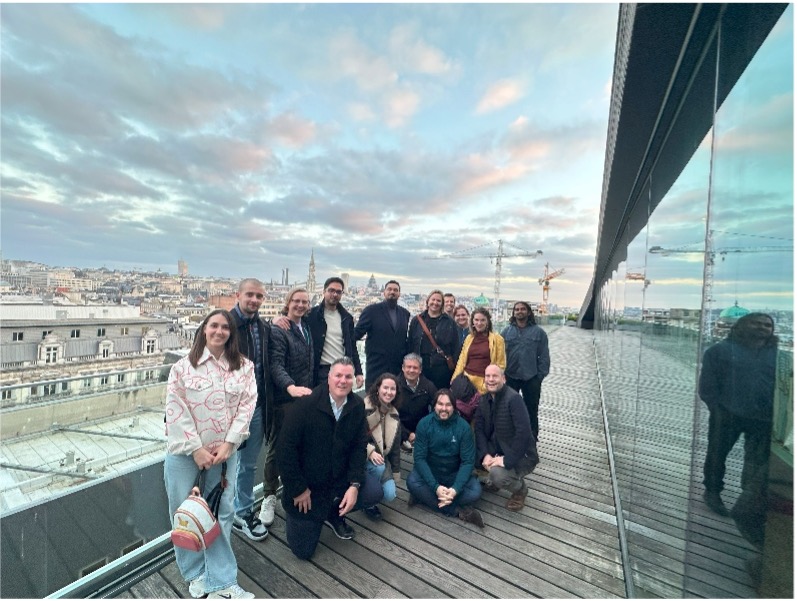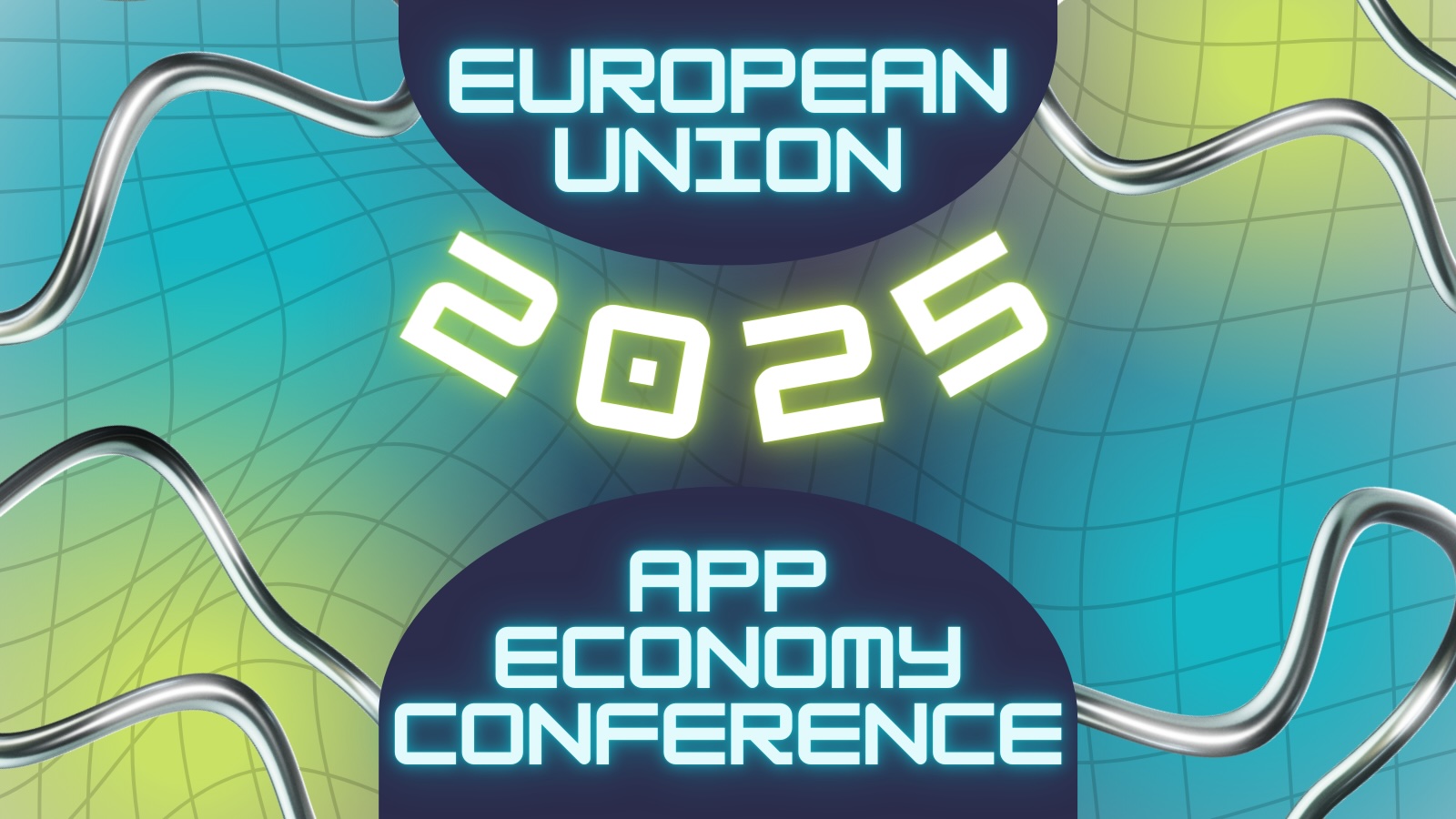This March, members of ACT | The App Association travelled to Brussels for the first-ever Global App Economy Conference: European Union, and it couldn’t have come at a more pivotal moment.
Sixteen of our EU small and medium-sized enterprise (SME) members from 12 countries met face-to-face with policymakers at the European Parliament and European Commission to share their experiences, challenges, and solutions. Against a backdrop of sweeping regulatory change, from the AI Act to Digital Markets Act (DMA) enforcement, our members came to deliver a message that can’t be ignored: SMEs are not merely participants in the digital economy. They’re the backbone, and their voices deserve a permanent seat at the policy table.
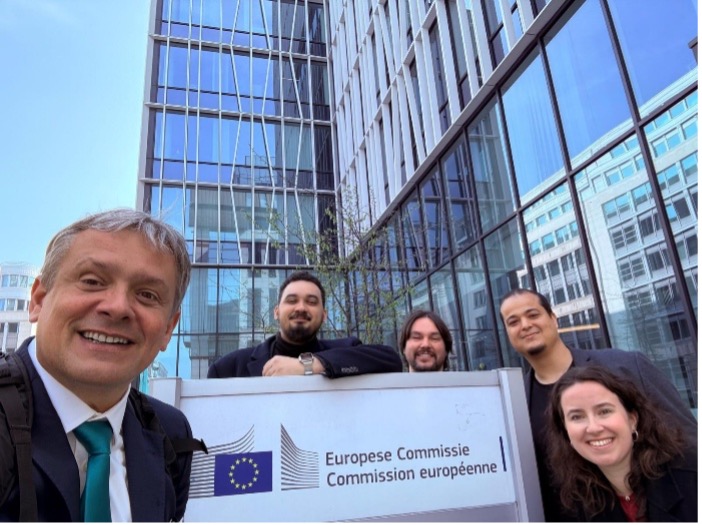
Here’s how our inaugural GAEC: EU unfolded.
Day one: Setting the tone
Before diving into several days of high-stakes advocacy, we brought our members together for a welcome dinner in the heart of Brussels. It was a chance to connect, not only as founders and developers, but also as peers, collaborators, and community.
For some, it was a reunion. For others, it was the first time meeting face-to-face after years of virtual connection. But for everyone, it was a moment to recharge and build the relationships that would carry us through the days ahead. Over shared food, drink, and experiences, we and our members set the tone for an effective and impactful week ahead!
Day two: From insights to impact
We kicked off the week with a day of deep policy discussions designed to prepare our members for the meetings ahead. With topics ranging from the Digital Markets Act to AI regulation and intellectual property, the agenda reflected the complexity and urgency of the challenges facing Europe’s app economy.
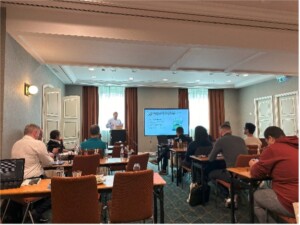 This wasn’t just another policy briefing; it was a recalibration, with our members leading the most crucial parts of these discussions. They shared their firsthand experiences with the DMA, the AI Act and Pact, and the EU Code of Practice. What’s working, what isn’t, and what policymakers need to know. Their stories and insights helped shape the strategy for the rest of the week, ensuring the meetings with Members of the European Parliament and Commission representatives would be grounded in reality, not red tape
This wasn’t just another policy briefing; it was a recalibration, with our members leading the most crucial parts of these discussions. They shared their firsthand experiences with the DMA, the AI Act and Pact, and the EU Code of Practice. What’s working, what isn’t, and what policymakers need to know. Their stories and insights helped shape the strategy for the rest of the week, ensuring the meetings with Members of the European Parliament and Commission representatives would be grounded in reality, not red tape
Days three and four: Advocacy in ACTion
Armed with stories, data, and lived experience, day three led our members to the European Parliament and European Commission for meetings to spotlight the real-world impacts of today’s regulatory decisions. These weren’t scripted briefings or surface-level sessions; they were honest, at times personal, conversations that opened the door to deeper understanding on both sides.
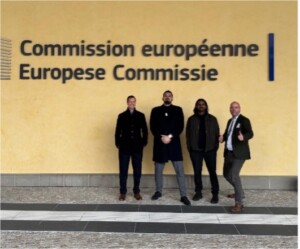 The final day of GAEC: EU wasn’t about wrapping up – it was about showing up. Our members returned to the halls of the European Commission and Parliament for a final round of meetings that brought the week’s advocacy full circle. They unpacked how vague AI definitions risk boxing out startups, how fragmented platform and privacy rules are putting developers in legal limbo, why access to capital can’t survive without proportionate merger and acquisition (M&A) rules, and the reasons why SMEs need standard-essential patent (SEP) licensing reform.
The final day of GAEC: EU wasn’t about wrapping up – it was about showing up. Our members returned to the halls of the European Commission and Parliament for a final round of meetings that brought the week’s advocacy full circle. They unpacked how vague AI definitions risk boxing out startups, how fragmented platform and privacy rules are putting developers in legal limbo, why access to capital can’t survive without proportionate merger and acquisition (M&A) rules, and the reasons why SMEs need standard-essential patent (SEP) licensing reform.
After more than 30 meetings spread over two days of advocacy, this theme rang clear: policymakers must listen to SMEs, and any regulation must be realistic, forward-looking, and built with SME innovators in mind, not just the largest players.
A first of many
GAEC: EU wasn’t just a conference; it was SMEs in action. For too long, SMEs, independent developers, and startups have been sidelined in Europe’s digital policy conversations. Through the GAEC, they stepped in and shifted the dialogue.
Thank you to our members who showed up ready to share, question, and lead. Your perspectives turned abstract policies into real-world stakes. And thank you to the policymakers and regulators who took the time to engage with our community. That kind of access and exchange is what moves the app economy forward.
Watch some of our GAEC: EU highlights here.
And we weren’t done. Our next stop was the United Kingdom for GAEC: UK.
